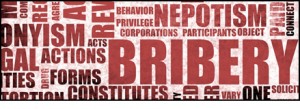 Today’s Idaho Statesman is reporting that the Chairman of the Idaho House State Affairs Committee, Representative Thomas F. Loertscher, ordered a private citizen to stop filming the public meeting of the State Affairs Committee. At the same time Loertscher allowed a member of “the media” to continue filming.
Today’s Idaho Statesman is reporting that the Chairman of the Idaho House State Affairs Committee, Representative Thomas F. Loertscher, ordered a private citizen to stop filming the public meeting of the State Affairs Committee. At the same time Loertscher allowed a member of “the media” to continue filming.
So was it a public meeting or not? If it was, and assuming the citizen was not being any more disruptive than the skews media representative allowed to continue, then was Loertscher right or wrong?
Here is what Idaho Attorney General Lawrence Wasden says in the Idaho Open Meeting Law Manual (see pages 14-15) about this type of circumstance:
Question No. 18: May qualifications or restrictions be placed on the public’s attendance at an open meeting?
Answer: A public agency may adopt reasonable rules and regulations to ensure the orderly conduct of a public meeting and to ensure the orderly behavior on the part of those persons attending the meeting. In Nevens v. City of Chino, a California appellate court nullified a city council measure, which prohibited the use of any tape recorders at city council proceedings. While acknowledging that the city council had an absolute right to adopt and enforce rules and regulations necessary to protect its public meetings, the court held that the rule prohibiting tape recorders was too arbitrary, capricious, restrictive and unreasonable. A similar holding might be reach if a governing body prohibits the use of cameras if their presence is not in fact disruptive of the conduct of the meeting. […]
If the AG has adopted that the sole criterion for the use of cameras is the level of disruption and not the occupation or employer of the camera operator, it seems to OpenCdA that the Idaho Open Meeting Law was violated and the private citizen was wrongly deprived of his ability to non-disruptively use his camera and record for inclusion in his blog.
What are Loertscher’s criteria for differentiating between “media public” and “public public?” It seems to us that if only the “public public” is required to get prior permission from the Chairman, the implication is that the Chairman may deny that permission to the “public public” while still allowing the “media public” to record. That would, we think, be arbitrary, capricious, restrictive, and unreasonable and amount to differential and preferential enforcement of the Idaho Open Meeting Act.
What do you think?
 If you haven’t read the Idaho Statesman article headlined 2014 concealed weapons law costs Idaho colleges $3.7 million, please take a few minutes and read it. The article was written by Bill Dentzer and appeared online on February 3.
If you haven’t read the Idaho Statesman article headlined 2014 concealed weapons law costs Idaho colleges $3.7 million, please take a few minutes and read it. The article was written by Bill Dentzer and appeared online on February 3.






